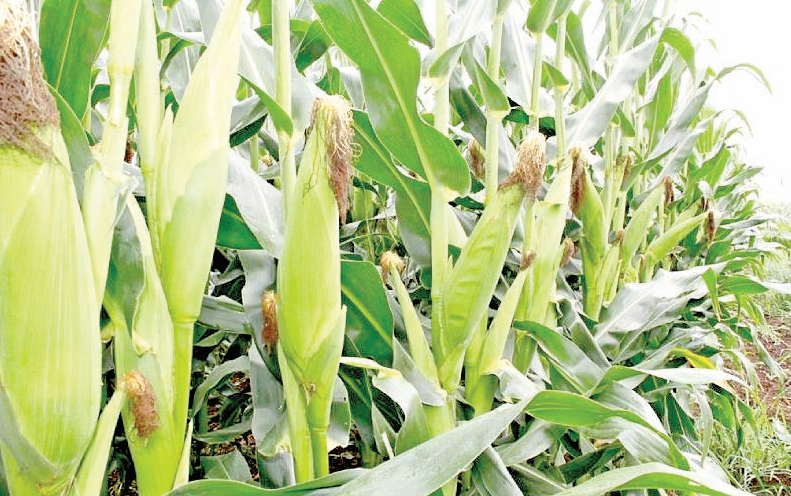Improving food security through plant health
By Wahinya.Henry, September 12, 2023Plant experts and stakeholders predict the country stands to remain food insecure because of the failure to take care of the health of plants.
They say efforts to boost food production continue to suffer from dangerous pests,such as Maize Lethal Necrosis Disease (MLND) whose economic loss is estimated at over Sh14.6 billion (US$100 million) per year.
“Pests and diseases destroy up to 40 per cent of global crops production every year in the world,” says Harun Warui, the project lead at Route to Food Initiative (RTFI).
“Crop loss affects food security and agriculture, the main source of income for vulnerable rural communities, as well as our environment,” he said.
Agronomist Gideon Ng’etich Marta says plants account for over 80 per cent of the human diet. As such, they are essential for food security.
Plant pests and diseases pose a threat to food security because they can damage crops, thus reducing the availability and access to food, increasing the cost of food.
“Plant pests and diseases may also negatively affect the palatability of food resulting in changes to the traditional food preferences of populations,” says Ng’etich
Effective control measures
MLND is a viral disease that affects maize crops, causing significant yield losses. The disease was first reported in Kenya in 2011.
The spread of the disease has been attributed to the movement of infected seeds and the lack of effective control measures.
The Lead Programme Coordinator Food Rights and Agroecology at Heinrich Boell Foundation regretted the loss estimated at over Sh29.2 billion (US$200 million) per year by farmers due to fall armyworm.
The destructive pest attacks maize, sorghum, and other crops. The pest was first reported in Kenya in 2016.
“We need to protect plants, both for people and the planet. All of us have a role to play.
Crop health protection is essential for poverty reduction, particularly in a developing country such as Kenya where agriculture is a significant source of income for rural communities. “The impact of poor plant health is great particularly for small-scale farmers who rely on agriculture for their livelihoods,” said Warui.
He continued, “Poor plant health leads to reduced crop yields, lower income, and food insecurity, exacerbating poverty levels.”
One of the significant challenges facing farmers in Kenya is the infestation of crops by pests and diseases.
Changes due to climate, loss of biodiversity, as well as wide adoption of mono cropping has led to emergence of insect pests, such as locusts and fall armyworms that cause significant damage to crops, leading to yield losses of up to 100 per cent.
The United Nations designated 12 May the International Day of Plant Health (IDPH) to raise global awareness on how protecting plant health can help end hunger, reduce poverty, protect biodiversity and the environment, and boost economic development. Plants make up 80 of the food that is eaten and provide 98 per cent of the oxygen breathed.
Climate change and human activities are altering ecosystems and damaging biodiversity while creating new niches for pests to thrive.
International travel and trade, which have tripled in volume in the last decade, are also further spreading pests and diseases.
Diseases in other crops
Cassava brown streak disease (CBSD), a viral disease affects cassava crops, a staple food in many African countries, including Kenya.
The disease causes stunted growth, yellowing of leaves, and yield losses of up to 100 per cent.
The spread of CBSD has been attributed to the lack of effective control measures, including the use of clean planting materials.
“Coffee is an important cash crop in Kenya, but it is threatened by coffee berry disease, a fungal disease that causes significant yield losses. The coffee berry borers spread the disease.
“The spread of the disease and the pest has been attributed to the lack of effective control measures, including the use of resistant coffee varieties and integrated pest management practices.
“In all these examples, the consequences of not protecting the health of plants, including the seeds and other planting materials, have been significant, leading to yield losses, reduced incomes for farmers, and food insecurity,” says Warui.
It is essential to invest in crop health research, education, and infrastructure to enable farmers to grow healthy and productive crops and ensure for food security for all.
It is essential to invest in sustainable agriculture practices, such as agroforestry and conservation agriculture, to promote biodiversity and soil health, and reduce the use of harmful chemicals.
Environmental stressors
“Additionally, promoting climate-smart agriculture will help farmers in Kenya adapt to the impacts of climate change and protect their crops from the effects of environmental destruction,” says Warui.
A healthy plant is one that is growing well, has vibrant leaves and stems, and does not present significant effect or harm by external factors, such as insects, diseases, or environmental stressors, such as drought or frost.
Healthy plants give an assurance that they would thrive and fulfill their intended purposes, whether that be of providing food, beauty, or other benefits.
The pests cause havoc even when the plant protection act of 2012 that provides for the prevention of plant health and a migration and invasive pests and weeds management strategy 2022-2027 are in place.
Carla Mucavi who has been Food and Agriculture Organisation Country Representative – Kenya, says that migratory and invasive pests like locusts pose a severe constraint to food and nutritional security in Kenya.
The frequency of invasions and infestations and spread of migratory and invasive pests have increased in the recent past, trends exacerbated by climate change.
“This situation has seen communities in affected areas becoming more vulnerable and unable to recover from such shocks,” notes Mucavi.
